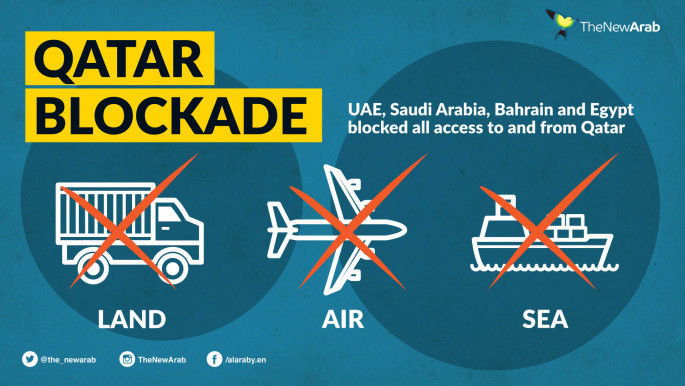Saudi-led bloc doubles down on Qatar blockade until demands met
Saudi Arabia, Egypt, the United Arab Emirates (UAE) and Bahrain have been boycotting Qatar since June 5 over unsubstantiated claims Doha has backed extremists, in the region's worst diplomatic crisis in years.
The foreign ministers of the four Arab states met in the Bahraini capital Manama on Sunday to discuss the blockade.
"The four countries are ready for dialogue with Qatar with the condition that it announces its sincere willingness to stop funding terrorism and extremism and its commitment to not interfere in other countries' foreign affairs and respond to the 13 demands," Bahrain's foreign minister Sheikh Khalid bin Ahmed al-Khalifa said in a televised news conference after the meeting.
A defiant Qatar has rejected the list of 13 demands from the Saudi-led coalition, which included shutting broadcaster Al Jazeera, downgrading diplomatic ties with Iran and closing a Turkish military base.
Earlier, a report in the Saudi-owned al-Hayat newspaper said that the foreign ministers were "expected to impose sanctions that will gradually affect the Qatari economy".
 |
|
Qatar has said that lifting the blockade is a non-negotiable condition and the gulf state refuses to "outsource" its foreign policy to the four states.
The Saudi-led bloc has sealed the emirate's only land border, ordered its citizens to leave and closed their airspace and waters to Qatari flights and shipping.
They demanded that Qatar break its longstanding ties with the Muslim Brotherhood, blacklisted as a "terror group" by the four governments although not by the international community.
They also demanded that it close broadcasting giant Al Jazeera and a Turkish military base, and fall in line with Saudi-led policy in the region, particularly towards Iran.
Qatar has dismissed the demands as a violation of its sovereignty and has received significant support from its ally Turkey.
Human rights groups have said the blockade was infringing on the right to free expression, separating families, interrupting medical care and education, and stranding migrant workers without food or water.
Agencies contributed to this report.



